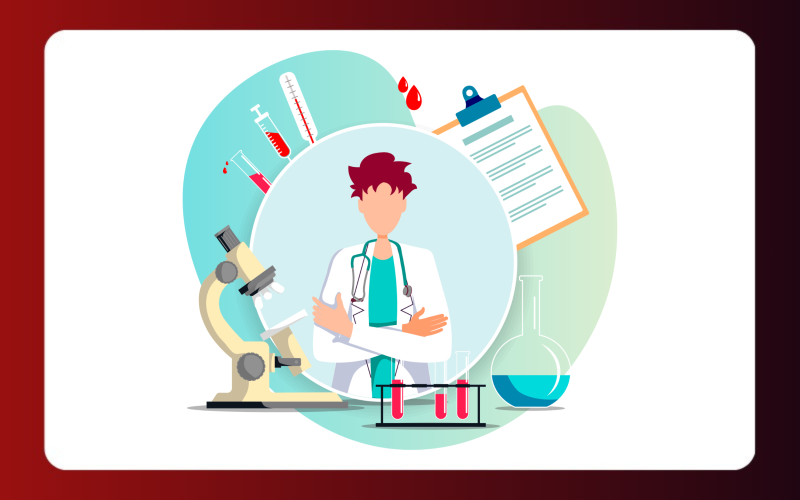Admission Enquiry

Medical Laboratory and Molecular Diagnostic Technology (MLMDT) is a specialized field within healthcare that encompasses laboratory-based diagnostic services focusing on the analysis of biological samples to aid in the diagnosis, treatment, and monitoring of diseases. This multifaceted discipline integrates traditional laboratory techniques with cutting-edge molecular diagnostic methods to provide comprehensive insights into the physiological and pathological processes underlying various medical conditions. Medical laboratory technologists and molecular diagnostic scientists play pivotal roles in performing a wide range of tests and analyses on patient samples, including blood, urine, tissue, and other bodily fluids.
In medical laboratory technology, professionals utilize a variety of techniques and methodologies across different laboratory disciplines, including clinical chemistry, hematology, immunology, microbiology, and blood banking. Clinical chemistry involves the analysis of blood and body fluid samples to assess biochemical markers, such as glucose, cholesterol, electrolytes, and enzymes, providing crucial information for diagnosing metabolic disorders, organ dysfunction, and other systemic diseases. Hematology focuses on the examination of blood cells and coagulation factors to diagnose conditions such as anemia, leukemia, and clotting disorders. Immunology plays a vital role in detecting the presence of antibodies, antigens, and immune system components to diagnose infectious diseases, autoimmune disorders, and allergies. Microbiology involves identifying and characterizing microorganisms, including bacteria, viruses, fungi, and parasites, to guide antimicrobial therapy and infection control measures.
Molecular diagnostic technology represents a rapidly evolving field within MLMDT, utilizing advanced techniques such as polymerase chain reaction (PCR), nucleic acid sequencing, and gene expression profiling to detect genetic mutations, infectious agents, and biomarkers associated with various diseases. Molecular diagnostics enable the detection of pathogens with high sensitivity and specificity, facilitate personalized medicine approaches, and inform treatment decisions in areas such as oncology, infectious diseases, and genetic disorders.
Medical laboratory and molecular diagnostic technologists operate state-of-the-art laboratory equipment and instrumentation, including automated analyzers, molecular diagnostic platforms, and bioinformatics tools, to perform tests accurately and efficiently. They adhere to strict quality control protocols and regulatory standards to ensure the accuracy, reliability, and validity of test results. Technologists interpret test data, analyze findings, and communicate results to healthcare providers, contributing valuable insights that inform patient diagnosis, treatment planning, and disease management strategies.
Furthermore, medical laboratory and molecular diagnostic technology play crucial roles in research, public health surveillance, and epidemiology, supporting efforts to understand disease trends, track outbreaks, and develop new diagnostic assays and therapeutic interventions. The continuous advancement of technology and innovation in MLMDT holds promise for improving healthcare delivery, enhancing patient outcomes, and advancing medical knowledge in the diagnosis and treatment of diseases.
Copyrights © 2024 NIILM UNIVERSITY. All rights reserved.